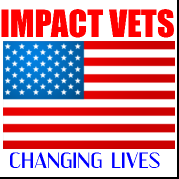
Counseling, Life Coaching, and Career Development
Life coaching helps individuals set and achieve personal and professional goals, improve self-awareness, and enhance overall well-being. Counseling augments coaching, on the other hand which focuses on healing mental health issues and addressing past traumas, providing support for emotional challenges. We combine Life coaching, Cognitive Behavioral Therapy with Career development, and entrepreneurship services for an integrated synergistic effect to encompass all areas of personal emotional and experiential growth for a holistic approach to veteran well being and integration into civilian life.
The cost of failed veteran reintegration into civilian life can be significant, impacting not only the veterans themselves through increased rates of unemployment, homelessness, and mental health issues, but also society at large through higher healthcare costs and loss of productivity. Additionally, the emotional toll on families and communities can lead to further social challenges and increased public spending on support services.
Benefits of Life Coaching
Personal Development
- Clarity and Purpose: Life coaches help clients identify their goals and passions, leading to a clearer sense of purpose.
- Self-Awareness: Coaching enhances self-awareness, allowing individuals to understand their strengths and weaknesses better.
Goal Achievement
- Action Plans: Coaches assist in creating actionable steps to achieve specific goals, making the process more manageable.
- Accountability: Regular sessions with a coach provide motivation and accountability, helping clients stay on track.
Improved Relationships
- Communication Skills: Life coaching can enhance interpersonal skills, leading to better personal and professional relationships.
- Conflict Resolution: Coaches provide tools for resolving conflicts and setting healthy boundaries.
Stress Management
- Mindfulness Techniques: Many coaches incorporate mindfulness practices to help clients manage stress and stay present.
Benefits of Counseling
Mental Health Support
There are several types of behavioral therapy, including Cognitive Behavioral Therapy (CBT), which focuses on changing negative thought patterns, and Dialectical Behavior Therapy (DBT), which emphasizes acceptance and change for emotional regulation. Other types include Applied Behavior Analysis, which uses reinforcement techniques, and Cognitive Behavioral Play Therapy, often used for children.
- Therapeutic Techniques: Counselors use various therapeutic methods such as cognitive behavioral, action centered, and to address mental health issues, such as anxiety and depression.
- Trauma Processing: Counseling provides a safe space to work through past traumas and emotional challenges.
Coping Strategies
- Skill Development: Counselors teach coping strategies to manage stress, improve emotional regulation, and handle life transitions.
Relationship Guidance
- Family and Couples Therapy: Counseling can help improve dynamics within families and couples, fostering healthier interactions.
Long-Term Healing
- Focus on Healing: Unlike life coaching, counseling often focuses on healing and understanding past experiences to promote long-term mental wellness.
Both life coaching and counseling offer valuable support, and they serve different purposes. Life coaching is more goal-oriented and focuses on personal development, while counseling addresses mental health issues and emotional healing.
We combine Counseling with Life Coaching, and Educational / Entrepreneurship services for 360 support
Guidance from experienced life coaches, counselors, mentors, entrepreneurs, industry experts, and business professionals, along with opportunities to connect with potential partners and customers is the key to successful careers. Pairing emerging entrepreneurs with successful business owners from similar backgrounds, fostering mentorship programs that offer guidance on navigating business challenges specific to BIPOC and under-served communities. Connecting entrepreneurs with successful business owners, policymakers, and nonprofit leaders in cities like Boston, New York, and Philadelphia, as well as rural development experts in upstate New York, Vermont, and Maine. Our programs should foster collaboration between urban and rural entrepreneurs to create sustainable business ecosystems. Our Counseling Program is lead by Nora Oliver, Lew Williams, and Doug Leaffer.
2. Education & Training
Workshops, courses, and mentorship programs that promote self enrichment, career development, business planning, financial management, marketing, and leadership skills. Culturally Relevant Education & Training – Business workshops and mentorship programs tailored to the specific needs of under-served entrepreneurs, including financial literacy, cooperative business models, digital entrepreneurship, and overcoming systemic barriers to success. We offer Business workshops tailored to industries thriving in the Northeast, such as renewable energy, technology, healthcare, manufacturing, and education. Training should includes workforce development strategies, cooperative business models, and social enterprise structures that address urban and rural economic disparities.
2. Access to Capital
We provide access capital through microloans, private equity, venture capital and crowdfunding opportunities to help entrepreneurs secure funding for their entrepreneurship ventures. Microloans, grants, credit-building initiatives, and alternative financing options designed to support entrepreneurs with limited access to traditional banking and investment opportunities. Pairing emerging entrepreneurs with successful business owners from similar backgrounds, fostering mentorship programs that offer guidance on navigating business challenges specific to under-served communities. Partnerships with community development financial institutions (CDFIs), state-backed small business loan programs, and local economic development grants that support historically underfunded entrepreneurs. Credit-building initiatives should include financial literacy programs that help entrepreneurs secure funding from regional banks, credit unions, and impact investors.
4. Business Development Support
Incubators, accelerators, and resources for legal, accounting, and operational support to help entrepreneurs refine and scale their businesses. Free or low-cost legal assistance, business registration support, and access to co-working spaces, incubators, and accelerators designed for minority-owned, women-owned, and community-driven businesses. Providing legal assistance on zoning laws, business licensing, and cooperative business structures relevant to the Northeast. Access to incubators and accelerators that focus on sustainability, urban revitalization, and tech-based startups, including partnerships with universities like MIT, Harvard, and the University of Pennsylvania.
5. Market Access & Growth Strategies
Training on market research, digital presence, branding, and sales strategies to help businesses reach their target audience and grow sustainably. Strategies for connecting entrepreneurs with local procurement opportunities, cooperative business models, and digital tools to reach broader markets while reinvesting in their communities. Helping businesses tap into regional procurement programs, anchor institution partnerships (e.g., hospitals, universities, local governments), and community-based cooperative models. Support for digital platforms and e-commerce strategies to connect Northeast entrepreneurs with national and international market


